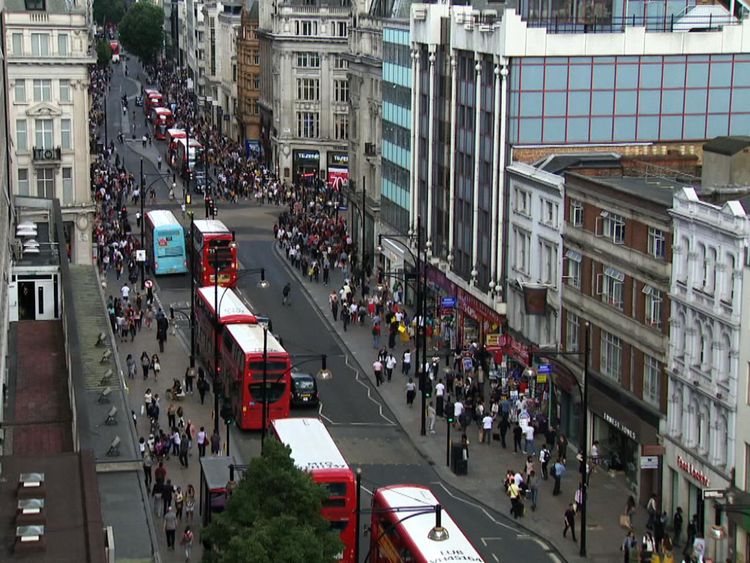One of Britain’s best-known retailers says Britain’s tax system should be radically changed to stop online companies having “an unfair advantage”, and being subsidised by the taxes of their rivals.
Justin King, former chief executive of Sainsbury’s, has called for business rates to be halved, with the lost revenue replaced by a 2% increase in VAT.
He says those changes would not increase shop prices, but would mean companies such as Amazon paying a fairer share of tax.
He has also suggested that the Government should consider a “delivery tax” on online retailers that “bypass retail space”.
Mr King was boss of Sainsbury’s for a decade until stepping down in 2014.
During his time in charge, the company enjoyed non-stop growth, while he was credited with making Sainsbury’s more efficient, forward-looking and customer-focused.
He is now vice-chairman of the private equity firm Terra Firma, and remains a keen observer of the retail world.
:: Amazon UK tax bill slashed despite profits almost doubling
Speaking exclusively to Sky News, he said: “Business rates are arcane.
“We need to find a different way to tax business activity, one that doesn’t fall so heavily on a business like traditional retail, that uses a lot of space.
“The present system creates an imbalanced playing field. Non-retail businesses don’t pay that tax because they don’t have stores – internet business is obvious example.
“When an Amazon delivery comes to your home in that cardboard box, which we all think is a bit excessive, then that box goes in the bin, or to the tip.
“The process is paid for by business rates – by the retailer who lost that sale, and was out-competed by Amazon, and who paid the tax for the services that Amazon used for free.
“It is unfair. And the tax system should never be part of the competitive advantage for a business. They should compete on a level basis – that is all the high street is asking for.”
Mr King’s suggestion is for a wide-ranging rethink of the tax system imposed on retail businesses.
“We have two options,” he said. “Either you shift the burden away from business rates to a small increase in VAT.
“If you look at the numbers it’s probably 2% on VAT that would allow you to halve the rate of business rates. And I don’t think prices would go up at all.
“The other way is a delivery tax – you tax the channel, which is unique when you bypass retail space. Clearly that would be a new tax and governments don’t like new taxes.
“It would require legislation and we all know that the government has a bigger agenda item on its mind at the moment. So I would go for the first option – cut business rates and increase VAT.”
Mr King also said that the pressure on British retailers was causing “good businesses to do things they shouldn’t have to do in order to survive”, including his own former company.
He said: “We are seeing, for example, Sainsbury’s completely change its employment service, going away from paying people for breaks.
“Waitrose has given its lowest level of bonus for 50 years. Good well-run businesses are not able to commit to their employees in the way they have in the past.
“These companies still pay people in the proper way, but they are competing with the so-called gig economy, and ultimately that is a massive cost advantage.
“The government says it wants to encourage innovation and growth, but the reality is that we are seeing very big businesses, like Uber’s drivers or Amazon’s van drivers, employed on this model.
“Competitive advantage is being based on much poorer employment practice. We need to ask questions of ourselves, as consumers, about the businesses that we are now doing business with.”
From – SkyNews


